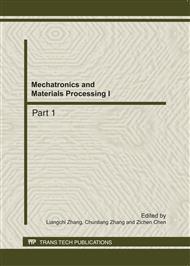p.2405
p.2409
p.2414
p.2419
p.2423
p.2427
p.2432
p.2436
p.2440
A Fuzzy Model of Scenario Planning Based on the Credibility Theory and Fuzzy Programming
Abstract:
Uncertainty, complexity and paradigm shift are three challenges that are inherent in emerging technologies. Scenarios provide background for decision-making by clarifying possible paths of emerging technologies. Based on the analysis of three basic stages of empirical scenario construction, i.e. analysis phase, subsystem analysis phase and syntheses phase, credibility theory and fuzzy programming are introduced to dissolve scenario planning problems. This paper adopt such research road as (1) measurement of factors’ credibility, (2) analysis of pairwise factors’ compatibility, (3) eliminate incompatible scenarios through pruning rules, and (4) choice of scenarios through fuzzy programming. And then, the choice of scenarios can be conducted by expected value model. In the end, the further research fields are also discussed.
Info:
Periodical:
Pages:
2423-2426
Citation:
Online since:
September 2011
Authors:
Keywords:
Price:
Сopyright:
© 2011 Trans Tech Publications Ltd. All Rights Reserved
Share:
Citation:


